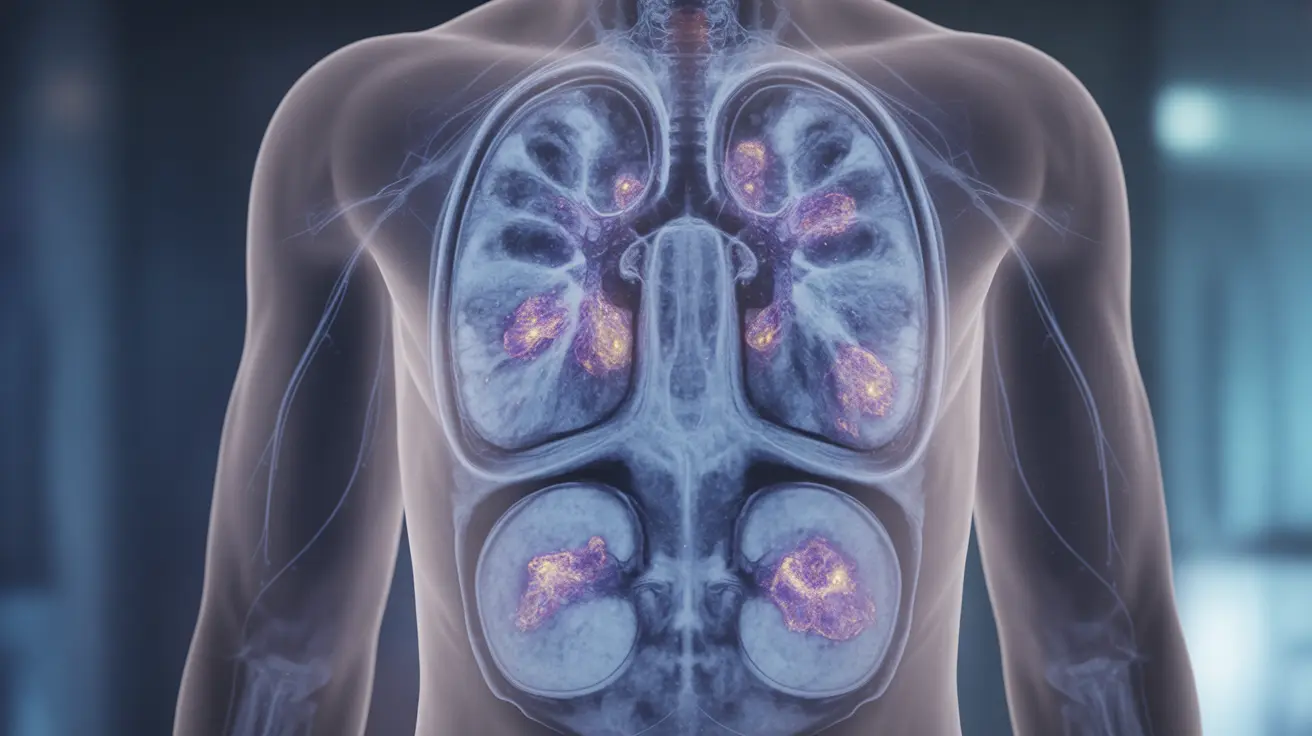When receiving a positive PET scan result, many patients immediately worry about cancer. However, it's crucial to understand that while PET scans are valuable diagnostic tools, a positive result doesn't automatically indicate cancer. Several other medical conditions can cause increased metabolic activity that appears as "hot spots" on a PET scan.
In this comprehensive guide, we'll explore the various conditions that can lead to positive PET scan results and understand why additional testing is often necessary for accurate diagnosis.
How PET Scans Work
PET (Positron Emission Tomography) scans work by tracking the consumption of a radioactive sugar substance in your body. Areas that use more energy – whether due to cancer or other conditions – appear brighter on the scan images.
The technology detects increased metabolic activity, which can be caused by various biological processes, not just cancer cells.
Non-Cancerous Conditions That Can Cause Positive PET Scans
Inflammatory Conditions
Several inflammatory conditions can trigger increased metabolic activity visible on PET scans:
- Rheumatoid arthritis
- Inflammatory bowel disease
- Sarcoidosis
- Vasculitis
Infections
Active infections often show up on PET scans because infected areas require more energy to fight off pathogens:
- Bacterial infections
- Tuberculosis
- Fungal infections
- Pneumonia
Post-Treatment Changes
Previous medical treatments can cause tissue changes that appear positive on PET scans:
- Radiation therapy sites
- Recent surgical areas
- Healing fractures
- Wound healing
The Importance of Additional Testing
Medical professionals rely on multiple diagnostic tools to confirm or rule out cancer when a PET scan shows positive results:
- CT or MRI scans for detailed anatomical images
- Blood tests to check for specific markers
- Tissue biopsies for definitive diagnosis
- Clinical examination and patient history
Frequently Asked Questions
Can a positive PET scan result be caused by conditions other than cancer?
Yes, numerous non-cancerous conditions can cause positive PET scan results, including infections, inflammatory diseases, and healing tissues. The scan detects increased metabolic activity, which isn't exclusive to cancer cells.
What are common reasons for false positives on a PET scan?
Common reasons for false positives include inflammatory conditions like arthritis, active infections, recent surgical sites, and normal physiological processes that require increased energy consumption.
How do doctors confirm whether a positive PET scan finding is cancer or not?
Doctors typically use a combination of additional diagnostic tools, including CT scans, MRIs, blood tests, and tissue biopsies. They also consider the patient's complete medical history and symptoms before making a final diagnosis.
Can infections or inflammation make a PET scan look like cancer?
Yes, infections and inflammation can appear as "hot spots" on PET scans because these conditions cause increased metabolic activity similar to cancer cells. This is why additional testing is crucial for accurate diagnosis.
Why do doctors often use additional tests like CT or biopsy after a positive PET scan?
Additional tests provide complementary information that helps confirm or rule out cancer. CT scans offer detailed anatomical images, while biopsies provide definitive tissue analysis. This comprehensive approach ensures accurate diagnosis and appropriate treatment planning.
Remember, while a positive PET scan result can be concerning, it's important to wait for complete diagnostic evaluation before drawing conclusions about cancer diagnosis.




